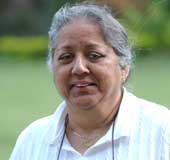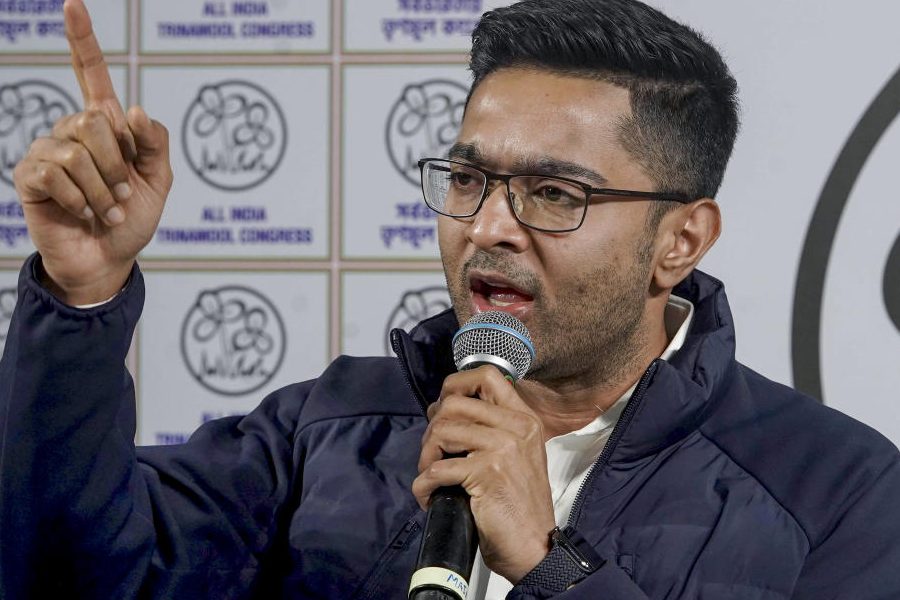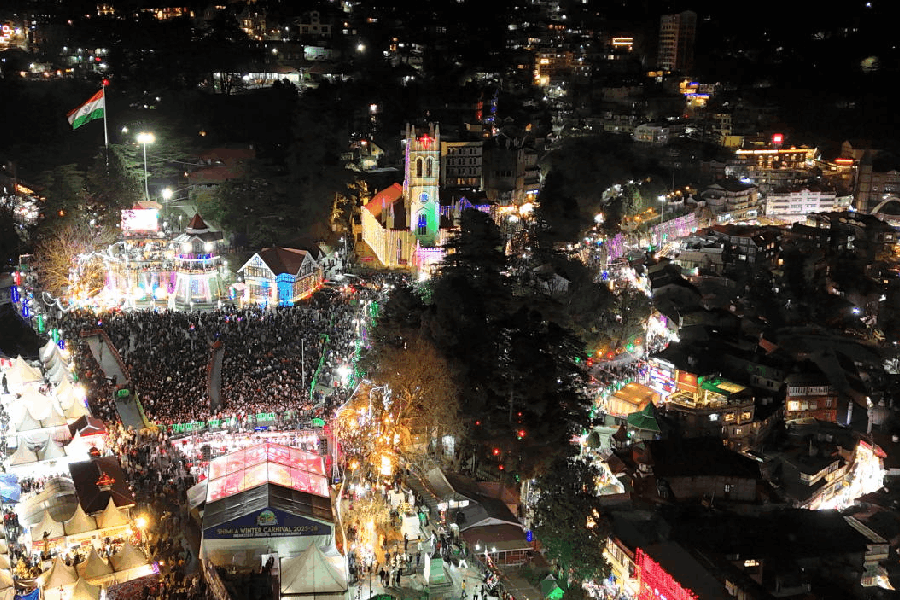 |
| Charmazel Dudt: Family ties |
‘Busy giddy minds with foreign wars’. This is part of the counsel on governance that Henry IV, King of England, had offered to his son, Henry V, on his deathbed. Iraq aggressor George W. Bush seems to have taken the suggestion in Shakespeare (Henry IV, Part II) to heart. This comes from Charmazel Dudt, the Regents Professor of English at the West Texas A&M University.
In town to speak on Shakespeare’s portrayal of kingship at a seminar organised by the Shakespeare Society of Eastern India on the Bard’s birth anniversary, the senior professor from the US President’s native state feels that the Iraq war is a means to distract attention from domestic problems like inflation and unemployment, “just like Margaret Thatcher’s Falkland war”. “I think the President could learn a lot from Shakespeare,” she smiles.
Texas does “feel proud of its homegrown boy” (“though all his education was on the east coast”). But that did not stop its “intelligent citizens” from coming down on the streets against the Iraq adventure, says the 62-year-old resident of Canyon, who grew up in Allahabad and has a strong Calcutta connection.
Dudt is a descendant of Michael Madhusudan Dutt. Dudt’s great-grandfather Roger Dutt was a first cousin to the poet. Both hailed from Jessore (now in Bangladesh) but Roger converted to Christianity and landed in Kanpur as a priest in an Anglican church. “My grandfather Cyril who shifted base to Rae Bareli changed our surname to distinguish the Christian wing of the family from the Hindu wing,” she explains. “I have done some reading at the British Library on my celebrated ancestor though my lack of Bengali is a limiting factor,” she says, adding that she loved Meghnad Badh Kabya in translation but was “not impressed” with Captive Ladie. The library incidentally has “some manuscripts and almost all the first editions” of Dutt’s works.
Once her book on Victorian journalist Wilfred Meynell is “removed from my plate”, she plans to take up a project to introduce Dutt to the West. “Dutt was heavily influenced by Shakespeare and Milton, especially in his use of the blank verse. So there might be a way to connect my two loves,” she reflects.
For now, she is too engrossed in classroom teaching to have time for research. “I go back the week before the final exams,” she shrugs.
Back to Texas, cowboyland celebrated by the Westerns in Fifties’ Hollywood. But Dudt would differ. “Being a cowboy is nothing glamorous, certainly not like John Wayne. They have to handle so much dirt and walk through thorny stretches in their huge leather shaps.”
The cowboy culture itself is on the wane. “Austin and Dallas are now heavily industrialised. Even the Stetson hats have made way for the wretched baseball caps that my students wear in class. It hides their eyes, so I always make the kids take them off,” she states. With artificial feeding of animals on the rise, the days of the big ranches are over, though there are medium-sized ones. (Bush owns one in Central Texas).
For the first time in Duttland, the teacher is intent on visiting the birthplace of the big gun in Bengali literature, Tagore. “I have carried a picture of him with me ever since I was 12.” Allahabad to Agra to Lucknow to Ohio to Texas — it is indeed a much-travelled picture.











